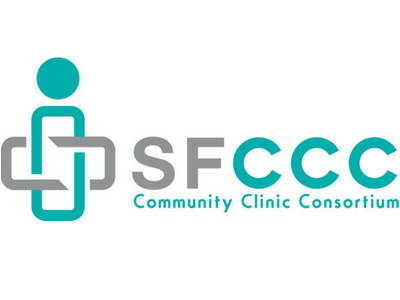Using Technology Optimization to Drive Collaboration Across Clinics
In 2023, we partnered with Recast Health, a healthcare consulting firm specializing in community-focused healthcare transformation to help SFCCC and our member clinics optimize our OCHIN Epic EHR system. Together, we’ve produced this case study to share some learnings from this unique and innovative project.
The San Francisco Community Clinic Consortium (SFCCC) is a partnership of nonprofit community clinics that provides leadership and fosters innovation to improve health status and reduce disparities among San Francisco's diverse, low-income communities. Part of SFCCC's mission is to harness the power of technology to enhance each member clinic's ability to improve operations and better meet patients' needs. In 2023, SFCCC received a one-year grant from Kaiser Permanente's Northern California Community Benefit Program to optimize OCHIN Epic electronic health records (EHR) for its member clinics.
Several of SFCCC’s member clinics implemented OCHIN Epic during the COVID-19 pandemic, which made the change management aspects of a large transformation project even more difficult. The increase in remote work and staff turnover, coupled with OCHIN's transition to virtual support during the pandemic, led to many frustrations among clinicians and staff. Many felt that there was more that could be done to optimize their use of OCHIN Epic.
SFCCC partnered with RecastHealth, a healthcare consulting firm specializing in community-focused healthcare transformation, to serve as an objective third party and lead the project.
Discovering Opportunities
Four member clinics, Equity Health, HealthRight 360, Mission Neighborhood Health Center, and San Francisco Community Health Center opted to participate in the OCHIN Epic optimization project. The project began in August 2023, with SFCCC leaders and RecastHealth consultants establishing a project steering committee consisting of key representatives from participating clinics. The steering committee would be critical in driving collaboration across member clinics.
Johanna Liu, SFCCC CEO, explains, “Our clinics offer specialized care to meet the unique needs of their clients and had previously been on different EHR systems, which made cross-clinic resource sharing difficult. The transition to OCHIN Epic presented an opportunity for clinics to collaborate at a level that was never possible before.”
Once the steering committee was on board with the collective approach to optimization, RecastHealth focused on better understanding each member clinic's specific issues. To do this, RecastHealth conducted a series of interviews, workflow observations, and surveys with various providers and staff from each clinic to ensure that all perspectives were represented in the evaluation.
RecastHealth identified over 400 unique issues stemming from inefficient use of OCHIN Epic, including a lack of data sharing within the community, a reliance on manual workarounds for processes that should have been automated, and a need to train providers and staff on best practices.
Determining Solutions
RecastHealth analyzed the issues and determined that 179 of the issues were shared amongst multiple clinics. The steering committee reviewed these issues and decided to prioritize addressing issues that had the most significant impact on patient care, staff workflow, and cost savings.
The most immediate solution was to work with OCHIN to train providers and staff on Epic best practices. Eight training sessions were organized, focusing on several areas including Behavioral Health and Dental Provider Training, OCHIN Billing Services, Patient Access, Provider Personalization, Referral Management, Behavioral Health and Dental Clinical Workflows, Revenue Cycle, and Social Determinants of Health Tools and Processes. Over 100 people from the member clinics participated in 59 hours of training, with each session focusing on a shared learning approach to allow participants to learn from OCHIN and each other.
In addition to optimizing how OCHIN Epic is used, SFCCC suspected there were ways to continue optimization after the initial KP grant concluded. The steering committee wanted to find ways to collaborate to address resource constraints, increase efficiency, and align on a data strategy for their entire community.
Greater Opportunities Ahead
Because the project was so successful, Kaiser Permanente agreed to extend grant funding to a second year to allow SFCCC to implement more ideas and establish processes for ongoing improvement.
"The clarity we gained this past year has helped to solve many key problems," said Jonathan Howell, SFCCC’s Director of IT. "Our member clinics experienced first-hand the direct effect that collaborating with each other can have on improving care for our community. We are thrilled that we have an additional year to create an even greater impact."
SFCCC is now in the process of adding a new Technology and Data Governance Committee to its existing governance structure. The committee will initially focus on collaboration to optimize OCHIN Epic but will eventually expand to include member clinics on different EHRs too. The committee will provide a venue to make decisions about data and technology, showcase best practices, connect people in similar roles, streamline communications and operations, and share resources across clinics.
